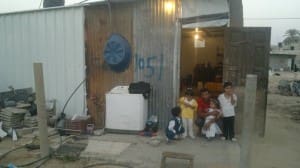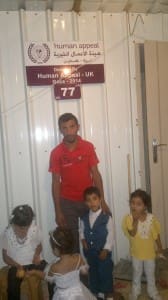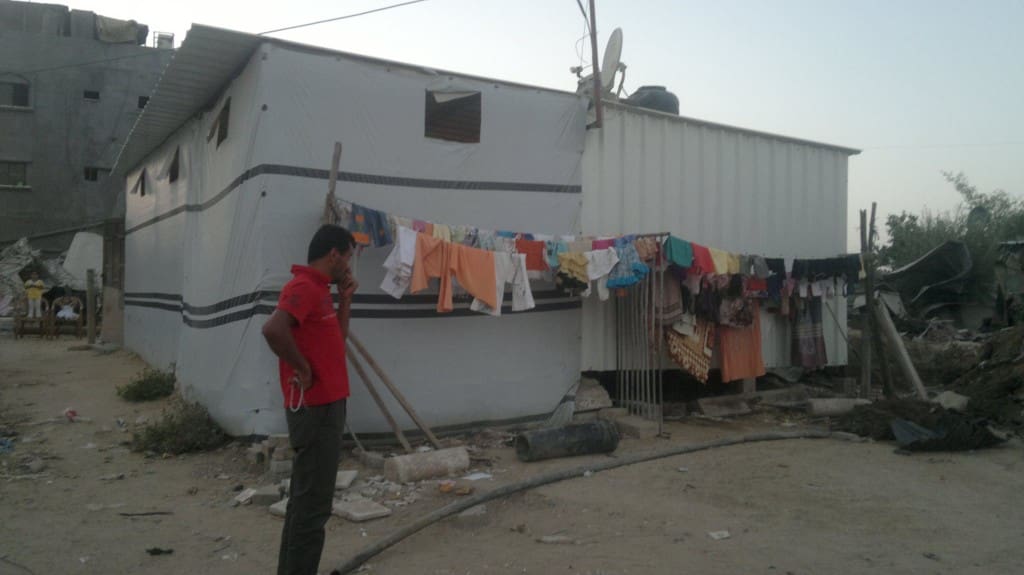There were too many feelings and ideas, too big to name or hold. They were jumbled in my heart and head and still are. I had to shake them off me, expel them, or at least release some of the pressure, so I could reclaim my body. I needed to look at my guilt, despair and fury outside my body, so I could understand how they collide inside me as I witness the slaughter of Palestinians. Month after month, ten feelings pop up in a conversation, and before I process or respond, ten different feelings take over preventing all connection. I can’t catch up with myself. Or breathe.
Watching a genocide in real time through WhatsApp messages from friends is heavy and isolating. I feel crazy most of the time. Am experiencing generational Holocaust trauma for real now, understanding how so many people let it happen to us, to others, because I see so many people let it happen again. I confessed my anxiety to a friend in exercise class and she said, “You can only do what you can do.” She let herself off the hook for doing more before she had done anything. Nobody gets it. I moved away.
So, to be able to climb out of my overwhelm and refocus on the political challenge, I sat down to write. I wrote a letter to a girl in Gaza, the daughter of a friend. I wrote a letter to a Jewish influencer I know who 18-months in still posts photos enjoying meals at cafes with smiling friends. And I wrote a letter to Anne Frank who, unlike me, had the maturity and wisdom to see the beauty amidst the ugly.
I printed each letter out on different colored paper and cut each letter into bites. I interspersed them on my dining table, letting them crash and converge, and while the whole thing makes no sense–not the conversations nor the genocide–I feel calmer having expelled these toxins from my body, slightly stronger to face more. There is so much more to face.

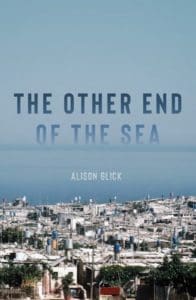
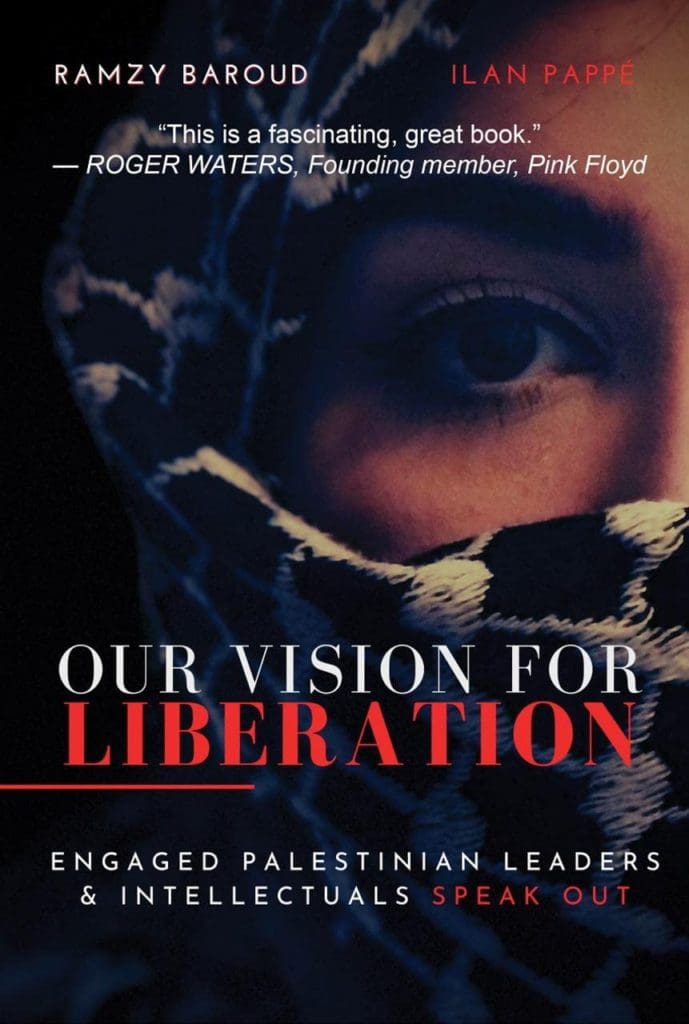
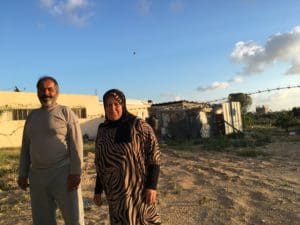
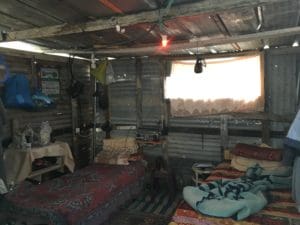
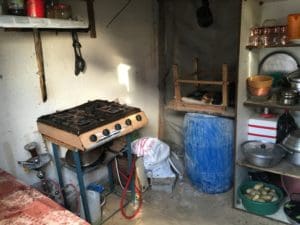
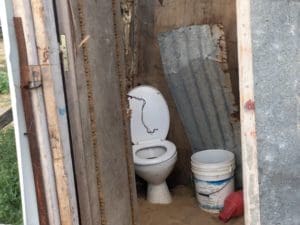
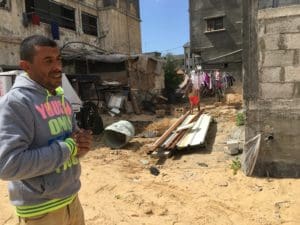
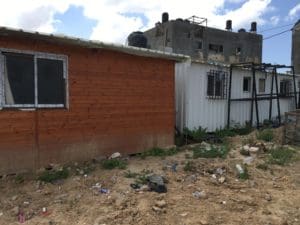 The aluminum caravan was so hot last summer, they slept outside. When the municipality wanted the land, Marwan moved his caravan near to his demolished home; that made the caravan even more unlivable. A donor provided a new, wooden caravan, but as the photo shows, it floods. There is no clarity if, when or how this family will ever get a new house.
The aluminum caravan was so hot last summer, they slept outside. When the municipality wanted the land, Marwan moved his caravan near to his demolished home; that made the caravan even more unlivable. A donor provided a new, wooden caravan, but as the photo shows, it floods. There is no clarity if, when or how this family will ever get a new house.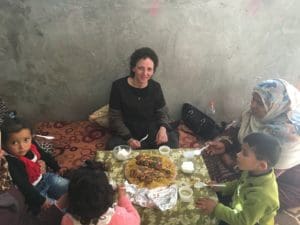
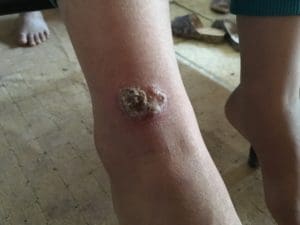
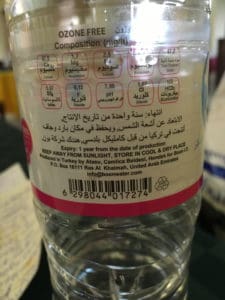
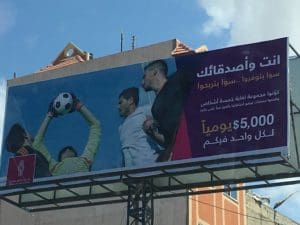
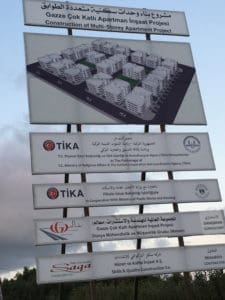
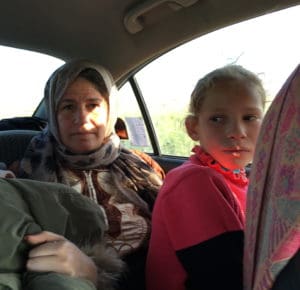
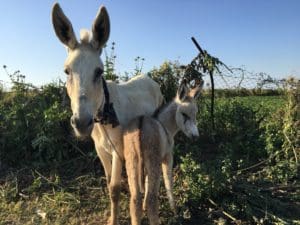 On the short drive, she showed us the rubble of her house, and her brother’s, and then, casually, she pointed out this donkey. “This donkey ran across the buffer zone to Israel and escaped the bombing that killed its owner. After the ceasefire, she came back, but the family who owned her never will.”
On the short drive, she showed us the rubble of her house, and her brother’s, and then, casually, she pointed out this donkey. “This donkey ran across the buffer zone to Israel and escaped the bombing that killed its owner. After the ceasefire, she came back, but the family who owned her never will.”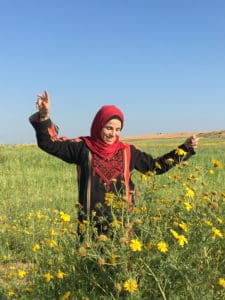
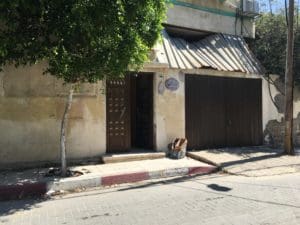
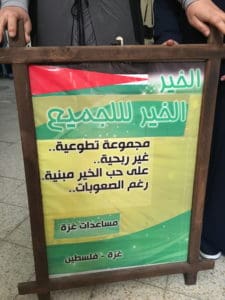 While I visited, various items were donated and various women came to shop for things they needed. The whole operation oozes with respect and gratitude and mutual help.
While I visited, various items were donated and various women came to shop for things they needed. The whole operation oozes with respect and gratitude and mutual help.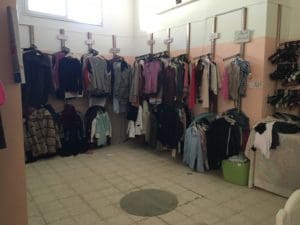 No sense of desperation or hopelessness there — Gazan society is doing what they can to help themselves. It was a good way to end my visit. But then, driving towards Erez Checkpoint on my way home, I began to feel a bit desperate. Had I used my precious time in Gaza fully? I started to snap photos indiscriminately to try to hold on to Gaza, to my gratitude for getting to visit this special place.
No sense of desperation or hopelessness there — Gazan society is doing what they can to help themselves. It was a good way to end my visit. But then, driving towards Erez Checkpoint on my way home, I began to feel a bit desperate. Had I used my precious time in Gaza fully? I started to snap photos indiscriminately to try to hold on to Gaza, to my gratitude for getting to visit this special place.